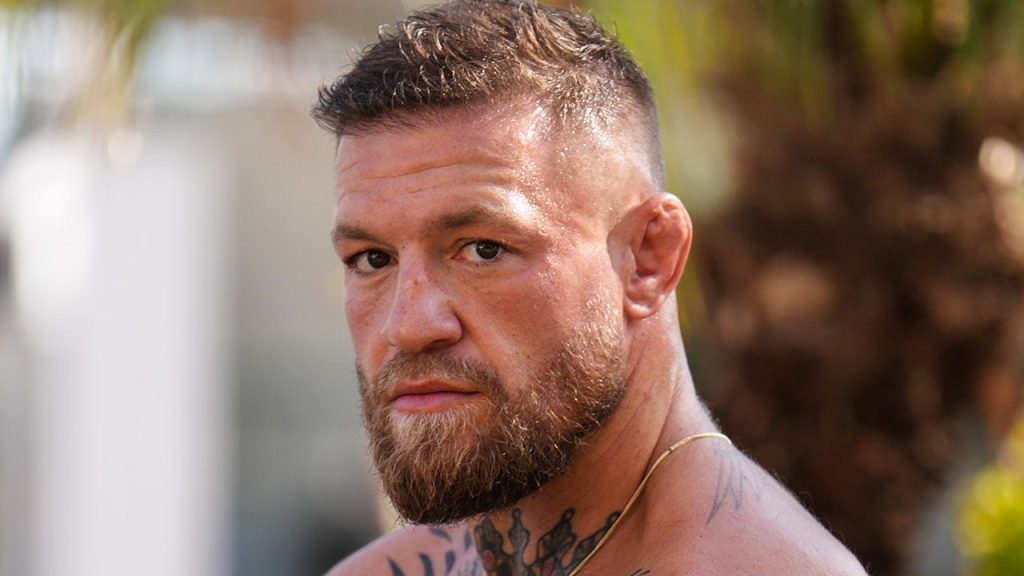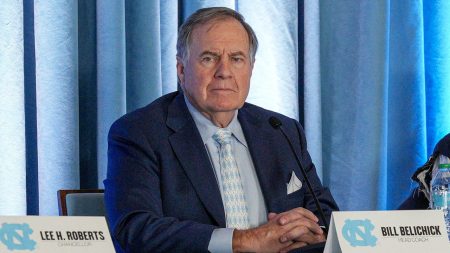Conor McGregor, the renowned mixed martial artist, vehemently denounced a pro-Hamas and pro-Hezbollah demonstration in Ireland, where the terrorist groups’ flags were prominently displayed. McGregor’s condemnation, expressed through a post on X (formerly Twitter), called for stricter legal measures against such displays, advocating for the act of raising a terrorist organization’s flag on Irish soil to be classified as a major crime. He distinguished between raising national flags, which he deemed acceptable, and raising flags of radical terror organizations, which he considered a significant problem requiring immediate attention. This strong statement reflects a growing concern among many about the overt support for designated terrorist organizations. The timing of McGregor’s post coincided with the release of four female hostages by Hamas as part of a ceasefire agreement with Israel, further underscoring the complex and volatile nature of the situation.
McGregor’s stance contrasted sharply with that of his longtime rival, Khabib Nurmagomedov, another prominent figure in the MMA world. Following his cousin Usman Nurmagomedov’s victory over Irishman Paul Hughes for the Bellator lightweight championship, Khabib praised Ireland for its pro-Palestinian stance. He acknowledged the contentious history between himself and McGregor but emphasized that the political landscape should not overshadow the respect within the MMA community. He expressed appreciation for Ireland’s support for Palestine, extending his gratitude to the Irish people and their government. Khabib’s remarks highlight the diverse perspectives and political undercurrents that intersect with the world of sports, particularly within the global MMA arena. His comments also illustrate how athletes can leverage their platform to express their political views, even within the context of a sporting event.
The juxtaposition of McGregor and Nurmagomedov’s statements reveals the intricate relationship between sports, politics, and personal beliefs. While both are respected figures in the MMA community, their diverging views on the Israeli-Palestinian conflict underscore the complexities of the issue and the passionate opinions it evokes. McGregor’s call for criminalizing the display of terrorist flags reflects a desire to prevent the glorification of violence and protect the sanctity of national symbols. Conversely, Nurmagomedov’s expression of gratitude towards Ireland’s pro-Palestinian stance highlights the ongoing debate about the political status of Palestine and the varying levels of international support it receives.
The rally in Ireland and the subsequent reactions from McGregor and Nurmagomedov serve as microcosms of the larger global conversation surrounding the Israeli-Palestinian conflict. The raising of Hamas and Hezbollah flags ignited strong emotions, with McGregor condemning the act as support for terrorism, while Nurmagomedov interpreted it as an expression of solidarity with the Palestinian people. These opposing viewpoints underscore the deep-seated divisions and complexities of the conflict, which extend beyond geopolitical boundaries and into the realm of personal beliefs and public expression.
The backdrop of these events is the ongoing conflict between Israel and Hamas, marked by escalating violence and humanitarian concerns. The release of hostages, while a positive step towards de-escalation, does not diminish the underlying tensions and the need for a lasting resolution. The exchange of hostages is often a complex and delicate negotiation, involving intricate political and humanitarian considerations. It is often seen as a crucial step towards achieving a ceasefire and opening the door for further dialogue and negotiations.
The intersection of sports and politics is a recurring theme, often amplified by the global reach of social media. Athletes, due to their high visibility and influence, often find themselves at the center of political debates, whether intentionally or unintentionally. McGregor and Nurmagomedov’s statements exemplify this phenomenon, as their views on the Israeli-Palestinian conflict garnered significant attention and contributed to a broader discussion about the role of athletes in expressing political opinions. Their statements also highlight the delicate balance between freedom of expression and the potential for such expressions to be interpreted as endorsements of violence or political agendas. This ongoing discussion underscores the importance of nuanced and informed dialogue, especially when addressing complex and emotionally charged geopolitical issues.










